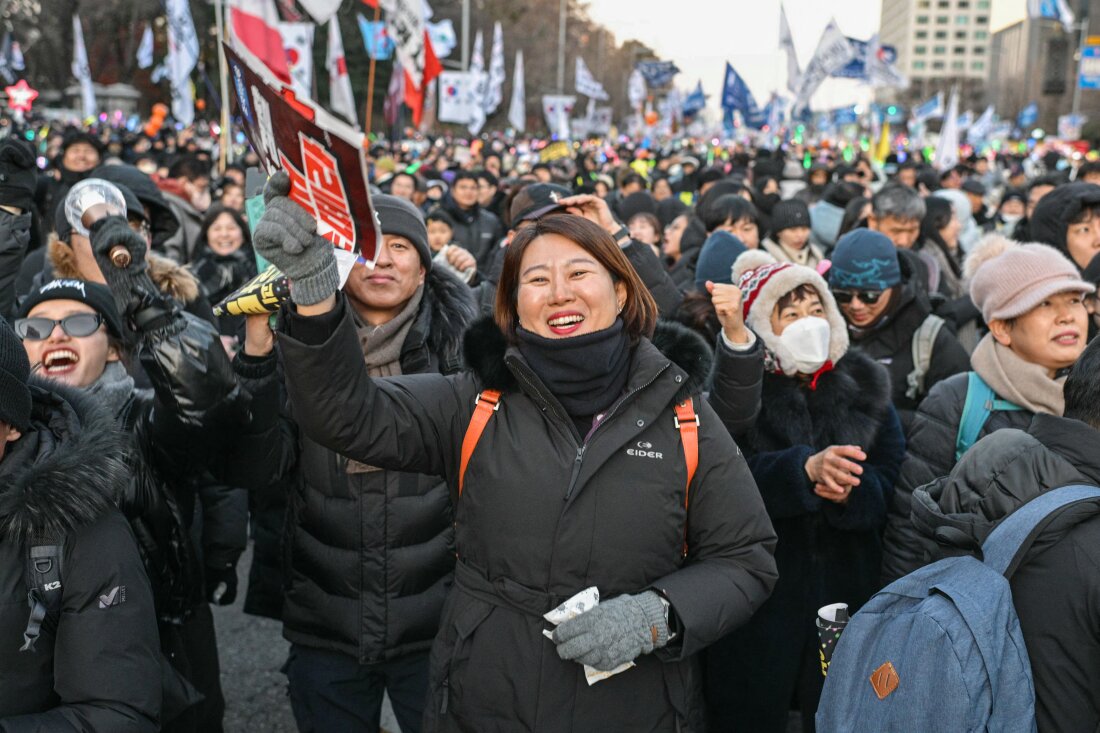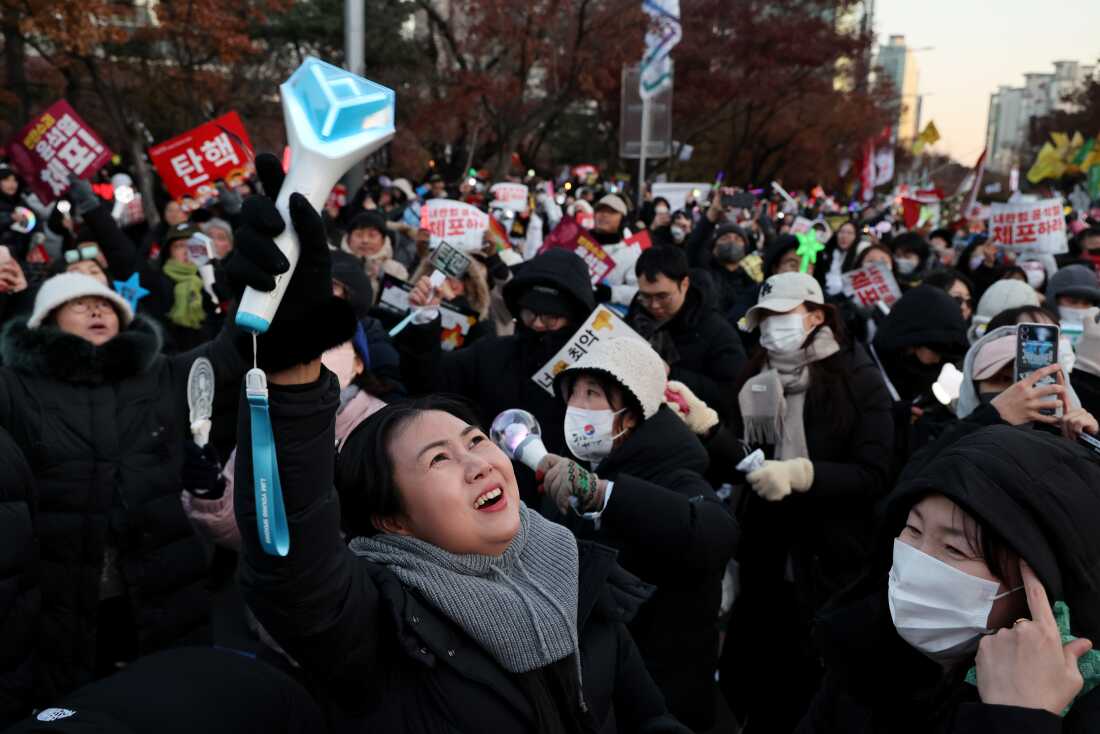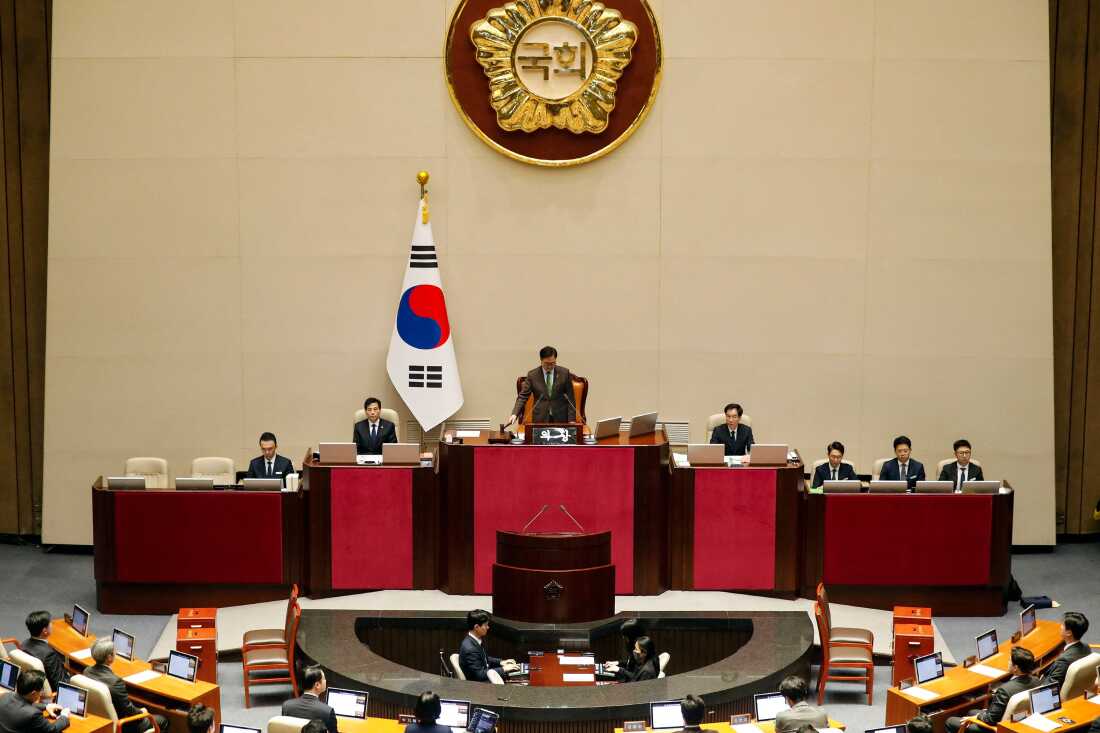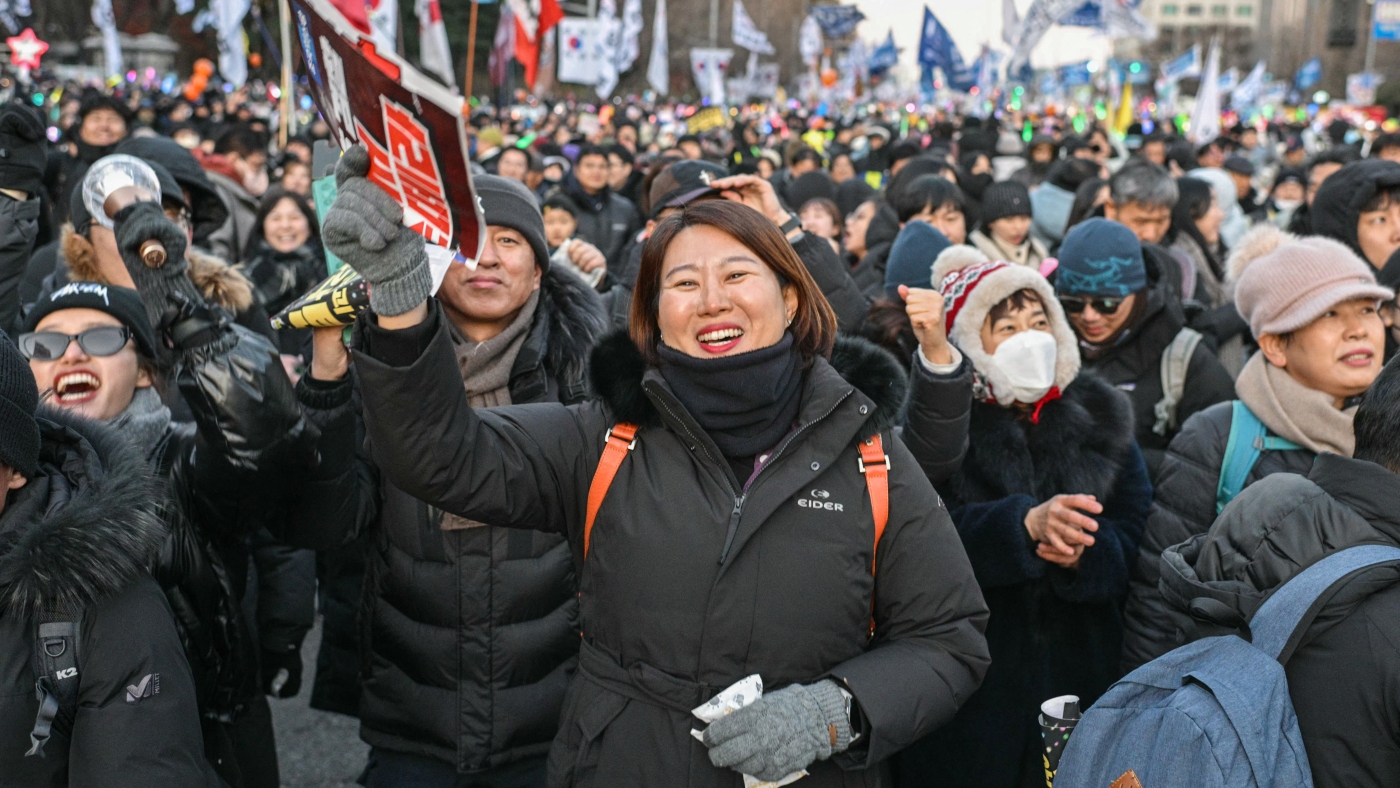
Protesters calling for the ouster of South Korea President Yoon Suk Yeol react after the result of the second martial law impeachment vote outside the National Assembly in Seoul, on Saturday.
Anthony Wallace/AFP via Getty Images
hide caption
toggle caption
Anthony Wallace/AFP via Getty Images
SEOUL, South Korea â South Korea’s parliament impeached President Yoon Suk Yeol, holding him accountable for his attempt to impose martial law. The martial law declaration, the first such measure in more than four decades, triggered political chaos in an established democracy and major U.S. ally, resulting in 11 uncertain and stressful days for ordinary South Koreans.
The vote passed 204 to 85 in the 300-member National Assembly. Around a dozen ruling party lawmakers joined the opposition in voting to impeach Yoon.
An earlier impeachment bill failed to pass last Saturday, when ruling People Power Party lawmakers boycotted the vote.
Huge crowds of protesters massed outside the National Assembly and around the country erupted in celebration, many of them waving light sticks often seen at K-pop concerts.

Protesters celebrate as the parliament votes to impeach South Korean president Yoon Suk Yeol over his decision to impose a martial law, in front of National Assembly on Saturday, in Seoul.
Han Myung-Gu/Getty Images
hide caption
toggle caption
Han Myung-Gu/Getty Images
Yoon’s presidential duties were suspended, and Prime Minister Han Duck-sool will take over as Acting Prime Minister.
South Korea’s Constitutional Court now has 180 days to rule in favor of or against Yoon’s impeachment. If they uphold it, an election for a new president must be held in 60 days.
Constitutional Court Acting Chief Justice Moon Hyung-bae said that justices “will conduct a speedy and fair trial.”
“Although I am pausing for now, my journey for the future with the people over the past two and a half years shouldn’t stop,” Yoon Suk Yeol said in a remarks recorded at his residence.
“I will carry with me all the criticisms, encouragement and support I have received,” he added, “and I will do my best for the nation until the end.”
Opposition Democratic Party leader Lee Jae-myung hailed the impeachment as proof “that the people are owners of this country,” and a victory in the “first round” of a protracted struggle.

In this handout photo provided by the South Korean Presidential Office, South Korean President Yoon Suk-Yeol speaks to the nation at the Presidential Office on December 14, 2024 in Seoul, South Korea.
South Korean Presidential Office/Getty Images
hide caption
toggle caption
South Korean Presidential Office/Getty Images
Yoon defiantly vowed on Thursday to “fight to the end,” claiming his declaration of martial law was a legitimate tool of governance. He insisted that it was necessary to end the paralysis of government by opposition lawmakers in league with North Korea.
But his explanation of events crumbled, and he became isolated as his supporters either abandoned him, or were arrested or suspended from their duties.
So many military commanders were suspended from their duties because of their roles in the martial law decree that concern spread that the South was militarily unprepared to deal with a potential North Korean aggression, although the military dismissed such ideas.
Yoon became South Korea’s first president to be banned from leaving the country, as police and investigators investigated him on suspicion of insurrection.
While Yoon’s popularity withered at home, he remained a popular figure with the Biden administration, which Yoon helped to achieve some of its key Asia policy aims, most notably tightening trilateral cooperation among the U.S., South Korea and Japan.

South Korean National Assembly Speaker Woo Won-shik bangs the gavel to initiate the plenary session for the impeachment vote of President Yoon Suk Yeol at the National Assembly in Seoul, on Saturday.
Woohae Cho/AFP via Getty Images
hide caption
toggle caption
Woohae Cho/AFP via Getty Images
In its first impeachment motion, opposition parties charged that “under the guise of so-called ‘value diplomacy,’ the [Yoon] administration ignored geopolitical balance” by alienating North Korea, China and Russia and pursuing an “unusual pro-Japan stance.”
This, it argued, increased South Korea’s isolation and harmed its national security.
Local media report that U.S. officials asked opposition politicians, after the first impeachment motion, about such language questioning what the Biden administration considered some of its signature achievements in the region. The language in question was removed from the second impeachment bill.


